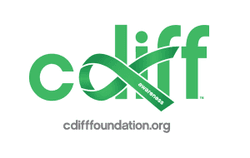Conference Coverage: New Challenges and Treatments for C Difficile Infection
Presentation highlights from the second and final day of the 9th Annual International C. diff Conference & Health Expo.

Today was the second and final day of the 9th Annual International C. diff Conference & Health Expo. A wide variety of topics related to research in and prevention of clostridium difficile were presented virtually throughout Thursday and Friday, interspersed with panelist discussions.
The following are highlighted presentations from Friday morning and afternoon, but you can find all of Contagion’s coverage of the conference here.
"Metronidazole For the Treatment of C. difficile Infections: On the Way Out?"
Wiep Klaas Smits, PhD, of the Department of Medical Microbiology Leiden University Medical Center, was the first speaker of the afternoon. Metronidazole has been the staple clostridium difficile infection (CDI) treatment for a long time, but Smits called metronidazole resistance “complicated,” citing reports of unstable, inducible, and heterogeneous resistance.
Its efficacy is lower than vancomycin and fidaxomicin, and it has a trend of decreasing in efficacy over time. Metronidazole is no longer recommended as a first-line treatment, as it has no clear evidence of resistance or increase in resistance, despite its widespread use.
Tailored susceptibility testing is essential for C difficile, and Smits also advocated for integrating data on antimicrobial susceptibility, phylogeny, genome characteristics, treatment outcome, and ideally patient genetics.
Smits concluded that metronidazole is an inferior treatment modality, due to its severe resistant pathways and potential transmission of resistance.
“A Four-pronged Threat: Clostridioides difficile Infection (CDI), Antibiotics, the Flu Season, and COVID-19.”
David M. Lyerly, PhD explored the intersections of CDI, antibiotics, influenza, and COVID-19. Beginning with C difficile, he recounted that there were 450000 cases of CDI in the US last year that killed 30000 people, without accounting for comorbidities.
Lyerly echoed talks from yesterday that referenced recurrent CDI as the most challenging part of fighting the virus. Up to 1 in 4 patients with CDI will relapse, with some relapsing multiple times. Because its spores are so difficult to kill, CDI has become the most common hospital-acquired infection. CDI is a global disease, and its new variants demand antimicrobial stewardship.
Mitigation effects to reduce COVID-19 also caused a decrease in flu illnesses by more than 98%, and lowered hospital-acquired infections like CDI. However, COVID-19 patients can become co-infected with C difficile, and vice versa. Dysbiosis has been demonstrated with viral respiratory infections, and dysbiosis involving the intestinal microbiome is a risk factor for CDI. There have been indications that COVID-19 can be treated by restoring a healthy intestinal microbiome, but fecal transplants may transfer COVID-19 infection.
Antibiotic use has been repeatedly traced to negative effects on the gut microbiota, due to reduced species diversity, decreased bacterial metabolic activity, and selection of antibiotic-resistant organisms. Treatment with antibiotics cause a 20% increase in CDI, or approximately tens of thousands of cases.
Ridinilazole: A Novel, Investigational, Precision Antibiotic for a C. difficile Infection.
Esther Duperchy, Director of Anti-Infectives Research at Summit Therapeutics, presented on a new antibiotic to fight CDI. Ridinilazole is a highly specific and bactericidal treatment that kills C difficile in vitro while preserving the microbiome.
Duperchy noted Ridinilazole’s microbiome-sparing profile, as there were many discussions throughout both days of the conference concerning the negative effects of antibiotics on the microbiome. Ridinilazole also preserves the protective secondary bile acids, while vancomycin reduces these levels. This is significant, as secondary bile acids are significantly lower in patients with recurring CDI.
In the multi-center, double-blind, phase 2 study, Ridinilazole reduced recurrence and exhibited a sustained clinical response. Sustained clinical response was defined as clinical response at the end of therapy with no recurrence for at least 30 days.
Overall, Ridinilazole offered a 60% reduction in CDI recurrence. While Duperchy could not reveal any more about the impending phase 3 trial, she hopes to provide updated results soon.
C Difficile and the Microbiome
Sabine Hazan, MD, has over 22 years of experience in clinical research, and calls herself “the queen of C diff.”
Hazan voiced her strong opposition of overmedication, saying it negatively affects the microbiome. No microbe is an island, and killing one with an antibiotic has a ripple effect that kills many. This loss of microbiome diversity causes disease.
Various factors affect the microbiome, and antibiotics are one of the major causes. Hazan said, “C difficile is a basic model of dysbiosis in human disease.” Hazan looked for applications of FMT beyond C diff, suggesting that low diversity is correlated with autism. Hazan’s search for applications of FMT beyond CDI was backed by her belief that all sickness and disease can be attributed to imbalances of the gut.
Newsletter
Stay ahead of emerging infectious disease threats with expert insights and breaking research. Subscribe now to get updates delivered straight to your inbox.
